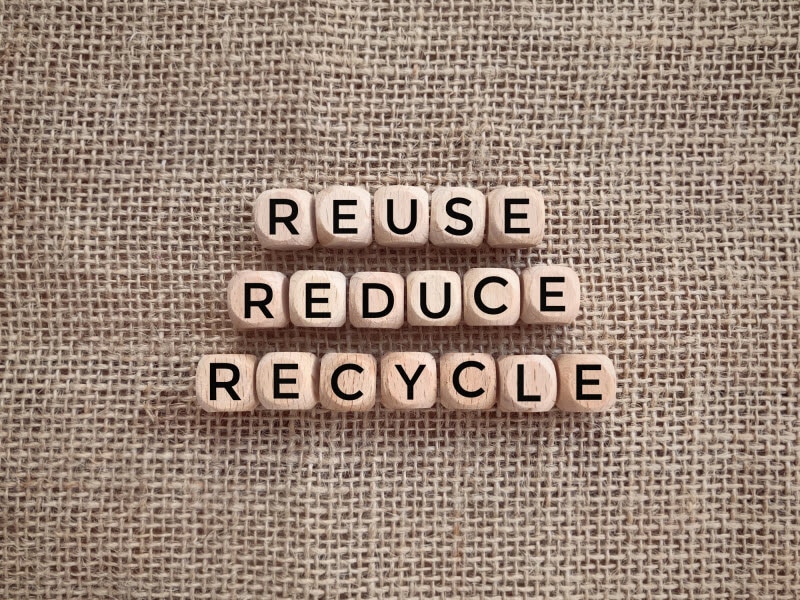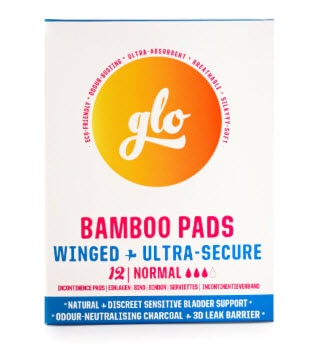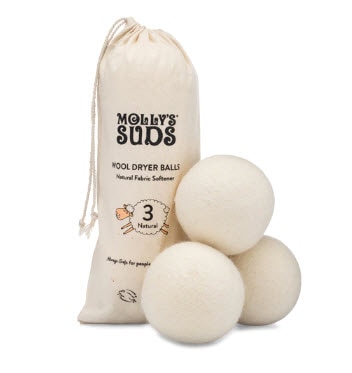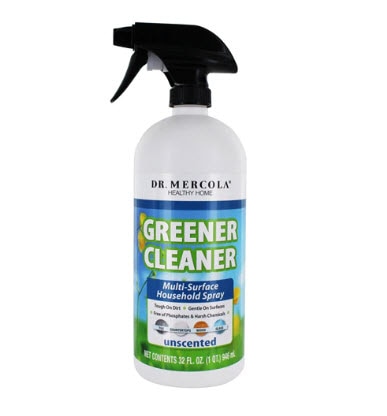As we celebrate Earth Month this year, why not elevate your game by getting savvy on some ecology terms that may be new to you? In this era of escalating environmental concerns, expanding your awareness of “green lingo” is an exemplary priority indeed. Knowledge is power, after all, and education is the best foundation for healthy change. Here are some valuable eco-terms to get hip to.
Acidification – A decrease in the pH of the oceans caused by increased carbon dioxide from the atmosphere. This elevated acidity is linked to reproductive problems in fish and abnormal shell growth in marine animals.
Acid rain – A form of acid deposition, in which sulfur and nitrogen emissions are transformed by chemical processes in the atmosphere. Acid rain dissolves nutrients trees require and impairs water uptake due to aluminum released into the soil.
Aeroponics – In this highly sustainable plant-cultivation technique, the roots hang suspended in the air while they are misted with a nutrient solution.
Afforestation – The establishment of a forest or stand of trees in a formally barren area. Many government and non-governmental organizations directly engage in afforestation programs to increase carbon capture, among other benefits.
Agricultural Pollution – In addition to the liquid and solid wastes from farming, including runoff and leaching of pesticides and fertilizers, this also includes erosion and dust from plowing, animal manure and carcasses, and debris from crops.
Agrivoltaics – Also called dual-use solar, this is the simultaneous use of areas of land for both solar photovoltaic power generation (see below) and agriculture.
Airborne particulates – Found in the atmosphere as solid particles or liquid droplets, these may include dust, emissions from industrial processes, smoke from the burning of wood and coal, and the exhaust of motor vehicles.
Air pollution – The result of contaminants in the air failing to properly disperse, which interfere with human health or promote other harmful environmental effects.
Biodiversity – The variety of different species on Earth.
Bioenergy – The energy produced from burning biomass, such as corn and soy.
Biofuel – A renewable source of energy; this refers to solid, liquid or gas.
Bioplastics – A biodegradable and renewable “plastic” typically made from plant-based materials, such as corn, fungi, or potato starch as opposed to petroleum used in traditional plastic.
Biosphere – The collection of ecosystems where all life on Earth exists.
Carbon neutrality – A balance between emitting carbon and absorbing it from the atmosphere. Learn Why You Should Care About Carbon Neutrality.
Carbon offset – Credits sold or traded to reduce carbon emissions.
Carbon sequestration – The process of capturing and storing carbon, thus preventing it from entering the atmosphere.
Circular economy – Unlike the traditionally linear “make-use-waste” economy, this model employs products/services to their fullest “life cycle.” Rather than dispose of spent products, they are repurposed in creative ways.
Climate change – An umbrella term for weather change caused by large increases in atmospheric carbon dioxide. See Global Warming.
Compost – A mixture of natural materials, such as food waste, used to enrich and improve soil quality. An item is “compostable” if it naturally biodegrades into the Earth. Learn How to Compost Even if You Don’t Have a Yard.
Conscious capitalism – A woefully underused model of free-market economy that collectively benefits people, animals, and the environment.
Corporate Social Responsibility (CSR) – CSR programs incorporate a social cause or contribution into a corporation’s business model or employee culture.
Deforestation – The practice of cutting down trees in large swaths. Once felled, rather than creating oxygen, they release carbon dioxide and other greenhouse gases. Forest loss and damage is the cause of around 10% of global warming.
Desalination – Removing salt from seawater. One possible, if costly, tactic for addressing global water scarcity.
Desertification – The process by which fertile land becomes desert, typically due to drought, deforestation, or inappropriate agriculture.
Eco consumerism – This refers to environmentally sustainable consumer choices.
Eco-friendly – All environmentally friendly practices and/or means of managing human affairs that help, rather than harm, our natural eco-system. This applies to all aspects of life, even hosting guests. Why not throw an eco-friendly party for your next celebration?
Eco tourism – A practice of travel to natural areas in support of local conservation efforts, which may involve a rainforest or a vulnerable species.
Environmental Protection Agency (EPA) – An independent executive agency of the federal government tasked with environmental protection matters.
Fair trade – The general term for trade between a producer and a seller through a supply chain that ensures that both relationships and practices are fair and environmentally sustainable.
Forest bathing – A Japanese relaxation practice of breathing calmly and quietly among the trees. Learn more here about the wellness benefits of immersing yourself in natural forest settings.
Fast fashion – Clothing produced rapidly and on a mass scale, often manufactured in factories with poor working conditions.
Fossil fuels – Non-renewable materials, such as coal, oil, and natural gas, originating from animal and plant remains buried in the Earth’s crust over millions of years. The process of extracting, refining, and burning these fuels is a major factor in climate change.
Forest Stewardship Council (FSC) – This organization provides labels for wood, paper, and packaging products, as well as clothing, shoes, and cork items, ensuring they all derive from sustainably managed trees with zero deforestation. The FSC 100% designation means all wood in the product is from 100% verified sustainably managed forests.
Geothermal energy – Renewable energy derived from hot water or steam within the earth, typically used to create electricity.
Global warming – The gradual increase in average global temperature attributed to human-caused greenhouse gas emissions. See Climate Change.
Green carbon – Stored in the plants and soil of natural ecosystems, this is a vital part of the global carbon cycle.
Green guide – The Federal Trade Commission’s Green Guides are designed to stop marketers from making environmental claims that mislead consumers.
Greenhouse effect – This occurs after energy from a planet’s host star goes through the planet’s atmosphere and heats the planet’s surface
Green concrete – A type of concrete made with waste materials that takes less energy to produce and is more eco-friendly overall than traditional versions.
Green roof – A rooftop that has been transformed into a garden or mini eco-system. Learn more here about how to create a rooftop garden.
Greenwashing – A corporate practice of deliberately misleading consumers into thinking products are safe, healthy, and “green” even if they are not. Learn here how to tell if your product choices truly are environmentally friendly.
Hemp – The fibrous portion of the cannabis plant. Industrial hemp is a highly sustainable commercial crop due to its rapid growth, carbon-sequestering property, higher biomass production, and myriad end-use products.
Hydroponics – A soil-free process of growing plants in sand, gravel, or liquid with added nutrients.
Life Cycle Assessment (LCA) – A methodology for assessing environmental impacts associated with all life cycle stages of a commercial product, process, or service.
Locavore – Someone who seeks out locally produced foods, products, and services.
Microbiome – The community of microorganisms that exist in every environment. For example, humans have a ‘gut microbiome’ consisting primarily of bacteria and microbes that live and exist together with numbers in the trillions.
Microplastic – These tiny beads of plastic, found in various consumer products, create havoc in natural environments, as they are often unknowingly ingested by animals and marine life. Sadly, microplastics are now globally ubiquitous.
Neonicotinoids – A systemic agricultural insecticide resembling nicotine, which has been linked to dangerously declining bee populations.
Net zero carbon – Also referred to as carbon neutrality, this is a state of zero carbon dioxide emissions, which is achieved by balancing emissions of carbon dioxide from society and/or carbon dioxide removal.
Ocean acidification – The decrease in the pH of the Earth’s Ocean, due primarily to carbon dioxide emissions from human activities.
Off grid – Not connected to the main utility supplies, particularly electricity. Anything ‘off-grid’ will generate its own energy, power supply, and sometimes water too.
Omni-degradable – This registered term refers to a specific type of packaging that can disintegrate in any environment through microbial decay.
Organic farming – A holistic approach to agriculture that aims for increased environmental sustainability and health using ecological pest control, natural fertilizers, crop rotation, and companion planting.
Ozone layer – A region of the Earth’s stratosphere that absorbs most of the Sun’s ultraviolet radiation
Palm oil – Used widely in food, beauty products, and biofuels, this environmentally unsustainable material comes at the expense of some of the world’s most biodiverse tropical rainforest which is clear-cut for palm oil plantations. This deliberate deforestation has a devastating impact on wildlife, ecosystems, and carbon storage.
Photovoltaic power generation – A large-scale, grid-connected photovoltaic power system designed for the supply of merchant power. Also called a Solar Park.
Phthalates – This family of industrial chemicals, used to soften polyvinyl chloride (PVC) plastic and as solvents in cosmetics and other consumer products, is harmful to humans, potentially damaging the liver, kidneys, lungs, and reproductive system. Learn more here about Phthalates and Your Health.
Planned obsolescence – A policy of deliberately producing consumer goods that rapidly become obsolete and must be replaced, achieved by frequent design changes, phasing out spare parts, and using nondurable materials.
Plant-based – A type of diet based on foods of plant origin, such as fruit, veggies, whole grains, beans and legumes, nuts, and seeds. This approach to food is perceived to be more flexible than veganism, which avoids animal-derived foods and materials 100 percent. Learn more here about a Plant-Based vs. Vegan Diet.
Plastic – A material typically made from fossil fuels, including crude oil. While some forms of can be recycled, plastic is not biodegradable, but instead breaks down into environmentally harmful microplastics.
Plastic footprint – A way to measure the monstrous amounts of plastic that people and organizations are wasting. By every measure, the U.S. plastic footprint is much too deep and wide. Learn here How to Calculate and Reduce Your Plastic Footprint.
Persistent Organic Pollutants (POPs) – These organic compounds are resistant to degradation through chemical, biological, and photolytic processes. They are toxic chemicals that adversely affect human health and the global environment.
Reforestation – Similar to afforestation and the opposite of deforestation; this is the replanting of trees, woodland, and forests on barren land.
Regenerative agriculture – An approach to producing food that helps rather than harms the environment compared to traditional agriculture. Regenerative methods offer a way to rehabilitate soil/organic matter.
Renewable energy – Energy created from unlimited natural processes. Renewable or “low carbon footprint” energy sources include solar, wind, geothermal, tidal, hydroelectric and bioenergy.
Reusable – This refers to something used more than once, like a favorite coffee mug, as opposed to single use items made from cheap materials and fossil fuels.
Rewilding – A type of conservation that involves reintroducing plants, trees, and animal species to areas where they were stripped away, thus restoring land to the point where it can once again naturally self-sustain.
Social responsibility – The ethical theory that individuals are accountable for fulfilling their civic duty with induvial actions that collectively benefit society. This is essential to balancing economic growth and the welfare of people and the environment.
Solar canopy – Ground or roof mounted steel structures that produce energy from large, sun-exposed surfaces (solar panels) while providing covered parking for drivers or shaded rest areas for people.
Solar energy – Radiant light and heat from the sun that is harnessed using a range of solar architecture technologies to generate electricity and thermal energy.
Sustainability – A way to meet our human needs without compromising the environment. This applies to everything from the gifts we buy to the annual resolutions we make; from our daily menu to our nutritional supplements and personal care choices. Check out these 5 Sustainable Beauty Strategies.
Sustainable living – A lifestyle predicated on creating the smallest possible carbon footprint in daily life, based on how one shops, eats, drives, travels, etc.
Thrifting – A fun, cheap, and easy way to “go green” by purchasing previously owned/used items. This is vastly more sustainable than buying new, on many levels, and very satisfying too. Check out these cool thrifting tips.
Tiny forest – Also called micro-forests, these are small areas of fast-growing trees which can be cultivated in urban areas where space is limited/land quality is poor.
Trees – Often called the lungs of the Earth, trees provide oxygen and help to moderate the climate by reducing erosion and capturing/storing carbon. Trees also provide a vital habitat for wildlife.
Veganism – A lifestyle choice to eliminate all animal products and materials. A vegan menu is 100% plant-based, revolving around fruit, veggies, whole grains, nuts, seeds, etc.
Vermicomposting – The use of earthworms to convert organic waste into fertilizer.
Xeriscaping – A landscaping style that requires little or no irrigation. Learn more here about How to Create a Natural Back Yard.
Zen/minimalism – This philosophy has come to represent concepts beyond its original definition. It is applied to minimalist lifestyle principles as well as home and garden design reflecting functionality and clean, harmonious spaces. Consider these Zen Kitchen tips.
Zero-Net Carbon (ZNC) Building – A highly energy efficient building that produces on-site, or procures, enough carbon-free renewable energy to meet basic/functional requirements.
Zero waste – A set of principles focused on waste prevention based on redesigning product life cycles so items can be repurposed/reused. The goal is to avoid sending trash to landfills, incinerators, the ocean, or any other part of the environment. Check out these Zero-Waste Cleaning Hacks




